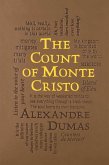Set against the tumultuous years of the post-Napoleonic era, Alexandre Dumas's grand historical romance recounts the swashbuckling adventures of Edmond Dantès, a dashing young sailor falsely accused of treason. The story of his long imprisonment, dramatic escape, and carefully wrought revenge offers up a vision of France that has become immortal.As Robert Louis Stevenson declared, "I do not believe there is another volume extant where you can breathe the same unmingled atmosphere of romance."
Hinweis: Dieser Artikel kann nur an eine deutsche Lieferadresse ausgeliefert werden.
Hinweis: Dieser Artikel kann nur an eine deutsche Lieferadresse ausgeliefert werden.








